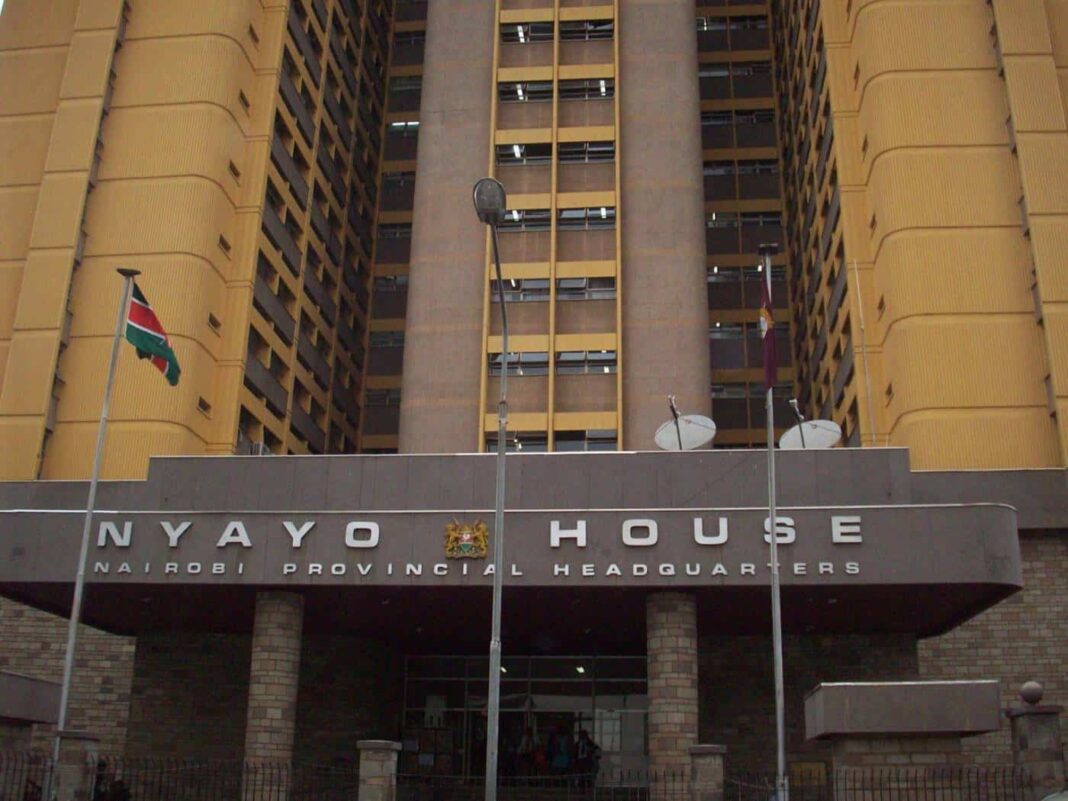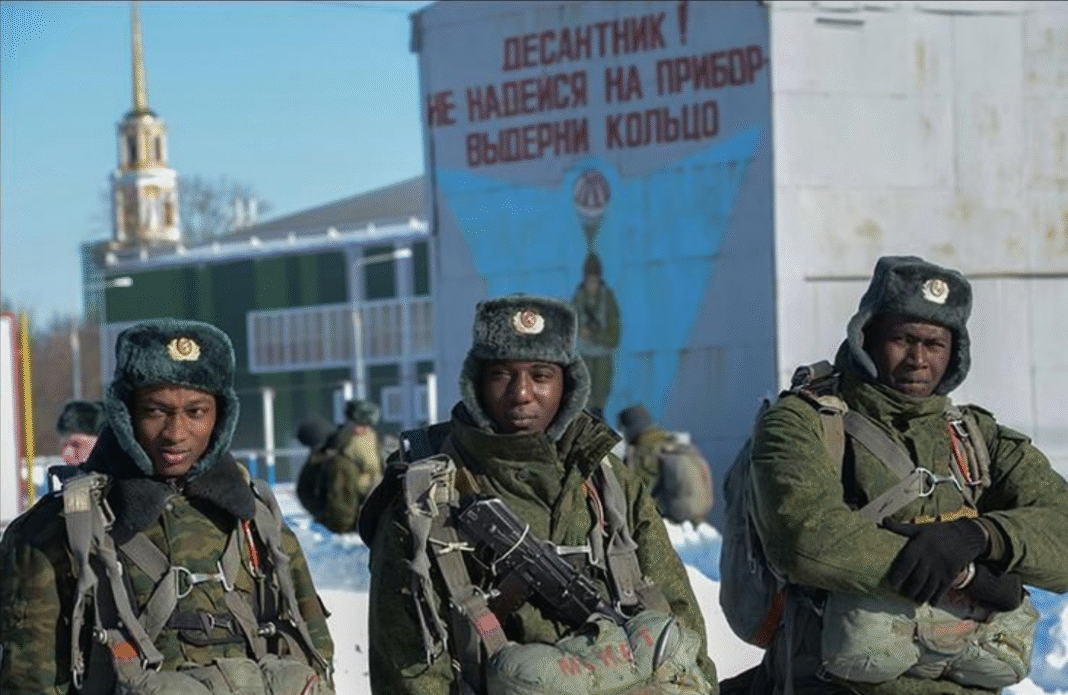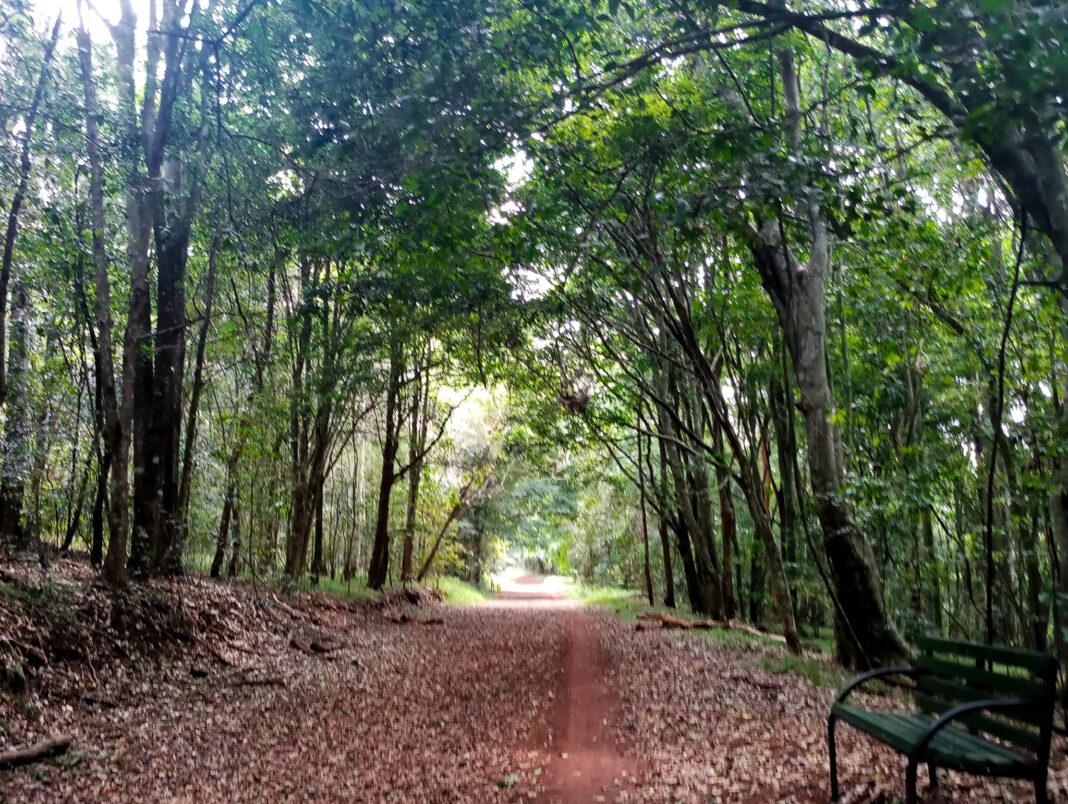Investigation Reveals Shocking Scale of Corruption as Officials Allegedly Confess to Funneling Millions Into Political War Chests
NAIROBI – In a cramped office in Nyayo House, desperate visa applicants wait for hours, clutching worn passports and crumpled dollar bills, unaware they are about to become victims of what investigators now believe is one of the most brazen theft operations ever to infiltrate Kenya’s civil service.
The system is elegant in its simplicity and devastating in its effectiveness. Applicants are told a visa costs nearly two hundred dollars. They pay. Most of that money never reaches government coffers. Instead, it flows through an intricate network of collectors, fixers, and officials before disappearing into accounts that community leaders claim ultimately fund political campaigns and personal enrichment.
This is not speculation.
This is not rumor.
Community organizations have now presented Kenyan authorities with two separate formal complaints backed by financial records, witness statements, digital forensics, and what they claim is the most damning evidence of all – alleged admissions from the very officials running the scheme.
When The Boss Confesses
The turning point in this saga came during what should have been routine meetings between visa applicants and immigration leadership.
Multiple witnesses, their accounts documented in sworn statements now sitting on the desks of anti-corruption investigators, describe Director General Evelyne Cheluget making statements that would be career-ending in any functioning democracy.

According to these testimonies, Cheluget acknowledged to visiting community representatives that she faces regular financial obligations tied to government political activities. The figure mentioned was staggering – four million shillings every weekend flowing from immigration operations into campaign coffers.
The Informant Digital has reviewed the formal complaint submitted by the Somali Community Task Group on Immigration Transparency, which quotes Cheluget as allegedly telling shocked visitors that while visa corruption predated her appointment, she now manages these political fundraising targets as part of her responsibilities.
If these accounts are accurate, and multiple independent witnesses insist they are, then Kenya has witnessed something extraordinary – a senior government official essentially confessing to transforming a public institution into a political fundraising vehicle while the victims of that transformation sat across the desk from her.
The community organizations filing complaints have been careful to note they cannot independently verify the authenticity of these statements, which is why they are demanding investigations that include interviewing all witnesses under oath and examining financial records to trace whether such payments actually occurred.
But the specificity of the accounts, the consistency across multiple witnesses, and the willingness of community leaders to put their names on formal complaints knowing they could face defamation charges if lying, lends considerable weight to their allegations.
The Architecture of Theft
To understand how this system allegedly functions, you have to follow the money from the moment a desperate applicant decides they need a Kenyan visa.
For Somali refugees hoping to bring family members to safety, for diaspora Kenyans trying to facilitate relative visits, for business travelers needing quick turnaround on travel documents, the process begins the same way. They are directed, often by word of mouth through community networks, to specific agents who promise they can get visas processed quickly.
These agents operate openly. In Eastleigh, the Nairobi neighborhood where Somalia’s diaspora has built a thriving commercial hub, fixers work from offices in shopping centers and communicate through WhatsApp groups with hundreds of members. In Mombasa, the operation runs from a private office in the upscale Nyali area. Even in Mogadishu, agents collect passports and fees to be bundled and sent to Nairobi for processing.
The fees are consistent across this network – between one hundred seventy-five and two hundred American dollars per application. Applicants are told this covers expedited processing, government charges, handling fees. What they are not told is that the official government fee for a referral visa is thirty-four dollars, a price publicly listed on immigration department websites.
That difference, between what applicants pay and what the government actually charges, is where the theft occurs. On a single visa, the network allegedly pockets anywhere from one hundred forty to one hundred sixty-six dollars. The complaint documents suggest approximately twelve hundred applications flow through these channels every week.
The mathematics is straightforward and shocking. Weekly, the network extracts roughly two hundred thousand dollars in excess fees. Monthly, that approaches eight hundred thousand dollars. Annually, it could reach ten million dollars stolen from some of Kenya’s most vulnerable populations seeking basic government services.
The Mombasa Connection
At the center of this web sits Abdulrahman Pashua Juma, a Mombasa-based businessman who community leaders describe as the operational mastermind coordinating the entire scheme.
Juma’s name appears repeatedly in the complaints, in witness statements, in WhatsApp chat logs that have been preserved and submitted to investigators. He is described as the man who actually processes applications, who maintains the relationships with immigration officials that allow the system to function, who collects and distributes the stolen funds.
Operating from Nyali, Juma has allegedly built what amounts to a parallel immigration processing center. Agents across multiple cities funnel passports and payment confirmations to him. He handles the actual submission into government systems, paying only the legitimate thirty-four dollar fee while keeping the rest. He ensures applications get approved through his connections inside Nyayo House. He coordinates the distribution of proceeds to various participants in the network.
This is not a man stealing petty cash from a till. This is someone running a sophisticated operation with logistics, communications security, financial flows, and political protection operating at a scale that would be impossible without high-level support.
The complaints identify several key lieutenants in this operation. Abdiaziz Ibrahim runs the Nairobi collection network, gathering passports and fees from agents scattered across Eastleigh and surrounding neighborhoods. Mohamed Salah Igge operates from Al-Kowther Mall in Eastleigh, serving as a money handler ensuring cash flows smoothly between Nairobi and Mombasa. Additional agents including Mubashir Omar, Abdirahman Ali, and Abukar Dhaqane work between Kenya and Somalia, expanding the network’s reach across borders.
What makes this operation particularly insidious is how it has captured legitimate channels. Independent travel agencies, properly licensed businesses trying to serve their clients honestly, report being completely locked out of visa processing systems. Their applications get rejected or endlessly delayed. Their inquiries to immigration offices go unanswered. Eventually, they either go out of business or quietly start using the very network they initially tried to avoid.
This transforms corruption from an optional shortcut into a mandatory toll. There is no honest path anymore. There is only the cartel or nothing.
The Insider Enablers
No criminal network can function inside a government facility like Nyayo House without protection from within. The complaints paint a detailed picture of how that protection allegedly operates.
The visa processing section, which should be staffed by rotating officers handling applications according to standardized procedures, has instead been transformed into what complainants describe as a controlled zone where only trusted personnel are allowed to function.
Multiple experienced immigration officers who previously held legitimate authority to approve referral applications have been stripped of their system access. The complaints name David Kinyua, an officer identified only as Kevo, and Oyancha as three professionals who lost their credentials after declining to cooperate with the arrangements being imposed from above.
Additional officers including Wafula, Njenga, Wanguthi, Meshack, and Joan have similarly been sidelined, told to occupy themselves with minor administrative tasks while the serious work of processing applications is reserved for compliant personnel.
This consolidation of processing authority is essential for the scheme to work. If multiple officers with system access were independently handling applications, discrepancies in fees and suspicious patterns in approvals would quickly become apparent. By funneling all work through just two officers who understand and accept the arrangement, the network maintains tight control over what gets processed and how money flows.
The complaints identify John Ndegwa, described as the Visa In-Charge, as holding a critical position overseeing daily operations and coordination. Richard Chesang, serving as Acting Deputy In-Charge, allegedly controls staff assignments and determines who gets system privileges. Their positions give them the authority to create the controlled environment the network requires.
Most disturbing are allegations surrounding Shem Ateka, an officer with National Intelligence Service connections who complainants claim provides security and early warning about investigations or internal inquiries. If accurate, this represents intelligence capabilities being deployed not to protect national security but to shield criminal activity from exposure.
The picture that emerges is of a department where honest officers have been systematically neutralized, where processing has been concentrated among participants willing to play along, and where security and intelligence resources protect the operation rather than investigating it.
When Political Money Corrupts Everything
The alleged confession about political fundraising transforms this from a corruption scandal into something far more corrosive to Kenya’s democratic institutions.
If immigration revenues are genuinely being diverted into campaign activities, it means elected officials or party structures have a direct financial interest in maintaining the corruption. It means that reform threatens not just corrupt civil servants but the political machines that depend on this money.
This creates protection that extends far beyond what any individual official could provide. Political parties have deep networks, they influence appointments to oversight bodies, they can pressure investigators, they control parliamentary committees that should be conducting hearings.
The alleged four million shillings per weekend, if real, would amount to sixteen million monthly or nearly two hundred million annually flowing from visa fraud into political coffers. That is serious money in Kenyan political terms, enough to fund significant campaign operations, pay party operatives, finance get-out-the-vote efforts.
But the complaint includes another detail that suggests even the political beneficiaries may be getting played. Community sources claim that when politicians later demand their share, they receive token payments of twenty thousand shillings while officials pocket the millions. If true, it means the corruption has layers – officials stealing from applicants, then stealing from the politicians they claim to be funding.
This double-dealing would explain why the network has survived so long. Politicians provide protection thinking they are benefiting, while the real money goes elsewhere. By the time anyone figures out the math, the officials have moved the money and covered their tracks.
The Digital Evidence Trail
Modern corruption leaves digital fingerprints that old-fashioned cash-based schemes never produced. The complainants understand this and have focused heavily on the technical evidence that could prove or disprove their allegations.
Analysis of application records allegedly shows patterns impossible to explain through legitimate processing. Multiple submissions originating from identical IP addresses despite supposedly coming from different applicants in different locations. Email accounts used for dozens of applications that should have individual addresses. Metadata timestamps showing applications submitted in batches at intervals that suggest automated processing rather than individual filing.
Screenshots of WhatsApp and Telegram groups where agents coordinate which applications are being processed on which dates, discussing payment confirmation and document handoff schedules. These communications groups have hundreds of members and have been operating for months, creating an extensive digital record of coordination.
Financial transaction records including M-Pesa statements showing patterns of payments flowing from numerous individuals to a small number of collectors, then consolidating into accounts controlled by network operators. Bank records that could trace where the money ultimately went if investigators subpoenaed them.
The Computer Misuse and Cybercrimes Act makes it illegal to manipulate government systems or impersonate applicants in official databases. If forensic analysis confirms applications are being submitted en masse from centralized locations using fabricated information, that alone constitutes serious criminal activity separate from the corruption charges.
The beauty of digital evidence is that it is difficult to explain away. You cannot claim coincidence when dozens of applications share identical IP addresses. You cannot dismiss metadata showing automated batch processing. You cannot ignore WhatsApp logs coordinating payments and document collection.
This is why the community organizations are so insistent about getting investigators to actually examine the technical evidence. They know it tells a story that witness testimony alone might not convince skeptics about.
The Human Cost Beyond Money
While the financial theft is staggering, the human dimensions of this scandal cut even deeper.
Imagine being a refugee in Nairobi, having fled violence in Somalia, trying to bring your elderly mother to safety through legal channels. You go to immigration, you ask about procedures, you are quoted two hundred dollars. You do not know this is six times the legal fee. You scrape together the money, selling possessions, borrowing from community members, going into debt.
You pay. Your application goes through. You are grateful. You never realize you have been robbed.
Now imagine being that same person but asking questions about why the fee is so high. According to testimonies in the complaints, such questions get you labeled as a troublemaker, insulted as low-class, threatened with rejection or even arrest. The message is clear – pay what we demand and be grateful, or risk losing everything.
This is what corruption does to vulnerable populations. It exploits their desperation. It punishes their poverty. It turns the very government institutions that should protect them into predators that feed on them.
The ethnic dimension makes it worse. The complaints detail how Somali applicants face systematic discrimination, how they are treated differently than other nationalities, how cultural and linguistic barriers are weaponized to prevent them from understanding or challenging the exploitation.
Article 27 of Kenya’s Constitution prohibits discrimination on ethnic or national grounds. The Immigration Act requires fair processing regardless of applicant origin. Both are being violated daily if these allegations are accurate.
The Silence That Condemns
What may be most damning in this entire saga is not what officials have allegedly said but what they have refused to say.
The Daily Nation reached out to the Immigration Department for comment on these allegations. No response was provided. We contacted the office of Director General Evelyne Cheluget directly. Our calls went unreturned. We sent detailed questions by email. They remain unanswered.
The Ethics and Anti-Corruption Commission was asked whether it had received the complaints and opened investigations. A spokesperson said they could not comment on ongoing or potential investigations but provided no confirmation that any investigation exists.
The Directorate of Criminal Investigations was similarly non-committal, with sources suggesting the complaints may still be working through initial assessment before any investigation would be launched.
The Parliamentary Committee on Administration and Internal Security, which has direct oversight responsibility for immigration matters, has not scheduled any hearings or called any witnesses despite the allegations sitting squarely in their mandate.
This coordinated silence from multiple institutions simultaneously is telling. When a corruption allegation lacks merit, officials rush to deny it, to provide contrary evidence, to threaten legal action against false accusers. The immediate response is outrage and rebuttal.
When allegations are accurate, the response is often silence. Say nothing. Let time pass. Hope public attention moves elsewhere. Wait for the news cycle to shift. Then quietly return to business as usual.
The fact that none of the named officials has issued even a pro forma denial, that no oversight body has announced even a preliminary inquiry, that no politician has called for accountability, suggests that everyone understands these allegations have substance and that investigating them would open doors better left closed.
What Justice Demands
If Kenya’s institutions respond seriously to these complaints, several actions become non-negotiable.
Every visa application processed through Nyayo House over the past eighteen months needs forensic auditing. System logs should show who approved what applications, from what IP addresses applications originated, what fees were actually collected. This data exists in government databases and can be analyzed if anyone has the courage to demand it.
Every named official should be placed on administrative leave while investigations proceed. This is not punishment before trial, it is standard procedure to prevent evidence tampering and continued criminal activity while investigators work. If they are innocent, they can return to duty with full back pay and cleared reputations.
Every financial account connected to named individuals should be frozen and examined. The Banking Act and anti-money laundering regulations give investigators authority to trace suspicious transactions. If millions have been stolen, that money went somewhere and left a trail.
Every witness who has come forward should receive protection from retaliation. The Witness Protection Act exists precisely for situations like this where people risk their safety to expose powerful criminals. If whistleblowers are abandoned to face consequences alone, no one will ever come forward again.
And most importantly, everyone found guilty after fair trial should face the maximum penalties available under law. Not token fines. Not gentle transfers to other positions. Not negotiated resignations with full benefits. Prison time and complete asset forfeiture for anyone who stole from desperate visa applicants.
Anything less than this comprehensive response will be seen as just another case of Kenyan corruption surviving because the powerful protect each other while the victims are ignored.
A Community Refuses to Back Down
What makes this scandal different from countless previous corruption cases is the determination of those fighting it.
The Somali community organizations behind these complaints have taken enormous risks. They have identified themselves publicly. They have named powerful officials. They have submitted evidence that could make them targets. They have set deadlines and made demands rather than humbly petitioning for justice.
This represents a fundamental shift from how vulnerable communities typically interact with Kenyan power structures. Usually, corruption victims suffer in silence, too afraid of retaliation to speak up, too cynical about accountability to believe complaining will achieve anything.
But these community leaders have had enough. They have watched their people exploited for too long. They have seen too many desperate applicants robbed. They have heard too many stories of discrimination and abuse.
Their complaint concludes with a declaration that should resonate with every Kenyan tired of impunity – “No more monopoly. No more corruption. No more discrimination. No fear to anyone like it or not.”
That final phrase, “no fear to anyone,” captures something essential about this moment. These are people who have decided that speaking truth to power matters more than personal safety. They would rather risk retaliation than continue living under a system that treats them as subjects to be exploited rather than citizens to be served.
Kenya’s democratic future may well depend on whether more communities find that same courage.
The Fourteen Day Reckoning
The Somali Community Task Group has done something unusual in Kenyan anti-corruption advocacy – they have set a specific, public deadline for action.
Fourteen days from when their complaint was filed, they expect written responses confirming investigations have opened, accounts have been frozen, and officials have been suspended. If those responses do not arrive, they have made clear they will escalate through legal action, international advocacy, and continued public pressure.
This timeline creates accountability that vague promises of eventual justice never provide. Either authorities act within fourteen days or their failure to act becomes another data point proving Kenya’s anti-corruption architecture is a facade.
The Daily Nation will be marking that deadline and reporting on what happens when it arrives. Did the Ethics and Anti-Corruption Commission open a file? Did the DCI assign investigators? Did anyone face any consequences? Or did the complaints disappear into the same black hole that has swallowed so many previous allegations?
That fourteen day window is rapidly closing. As this newspaper goes to print, authorities have less than a week to demonstrate they take these allegations seriously.
The Question Kenya Must Answer
This scandal forces a fundamental question about what kind of country Kenya wants to be.
Do we want a country where detailed, evidence-backed corruption allegations against senior officials get investigated vigorously regardless of political connections? Or do we want a country where such allegations get buried through silence and bureaucratic stonewalling?
Do we want a country where vulnerable communities can demand justice without fear of retaliation? Or do we want a country where speaking truth to power is punished while the powerful continue looting with impunity?
Do we want a country where civil servants see public service as a sacred trust? Or do we want a country where government offices are seen as profit centers to be exploited?
The visa scandal is not really about visas. It is about whether Kenya’s democratic institutions function or whether they exist only as elaborate theater to satisfy international donors while the real business of government remains corruption.
Every Kenyan who has ever paid a bribe to get a license processed, to avoid a traffic ticket, to receive medical care, to get their child into school, knows the answer to that question in their bones. Corruption in Kenya is not an aberration. It is the system.
But sometimes, just sometimes, a scandal breaks that is so brazen, so well-documented, so impossible to ignore that it creates a moment where real change becomes possible.
This could be one of those moments. Or it could be just another case study in impunity.
The world is watching. Kenya’s development partners are watching. Most importantly, ordinary Kenyans who are tired of being robbed by their own government are watching.
What happens next will tell us whether the anti-corruption rhetoric we hear from politicians translates to action when confronted with specific, detailed, evidence-backed allegations against powerful officials.
The Somali community has done its part. They have gathered evidence, organized witnesses, filed formal complaints, and demanded accountability. They have shown more courage and determination than most of the oversight institutions supposedly protecting public integrity.
Now it is up to Kenya’s institutions to prove they deserve the public trust they claim to serve.
The clock is ticking.


